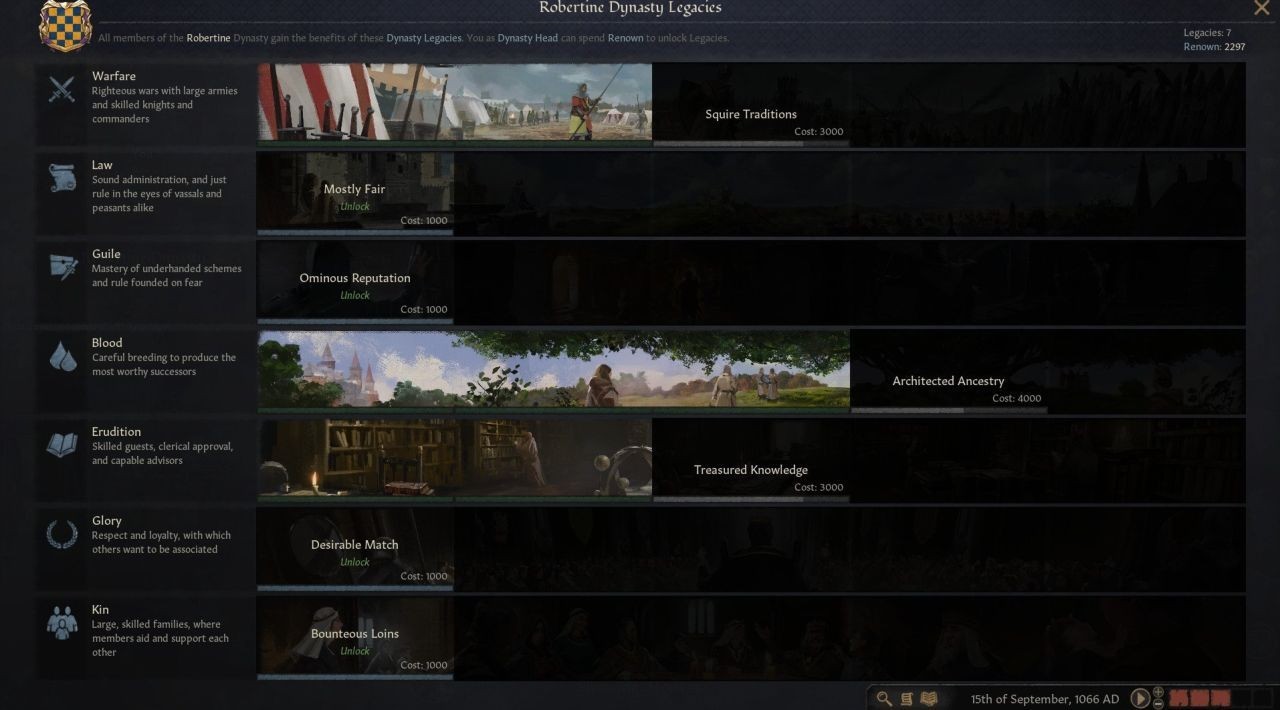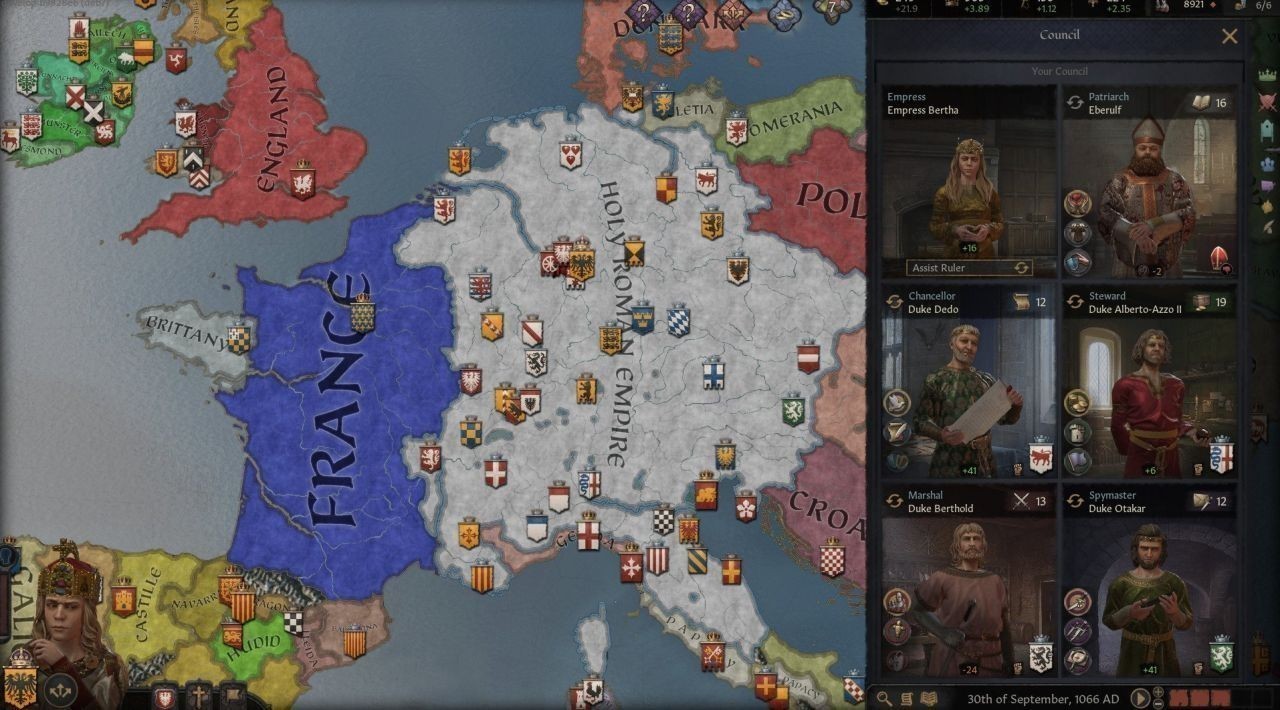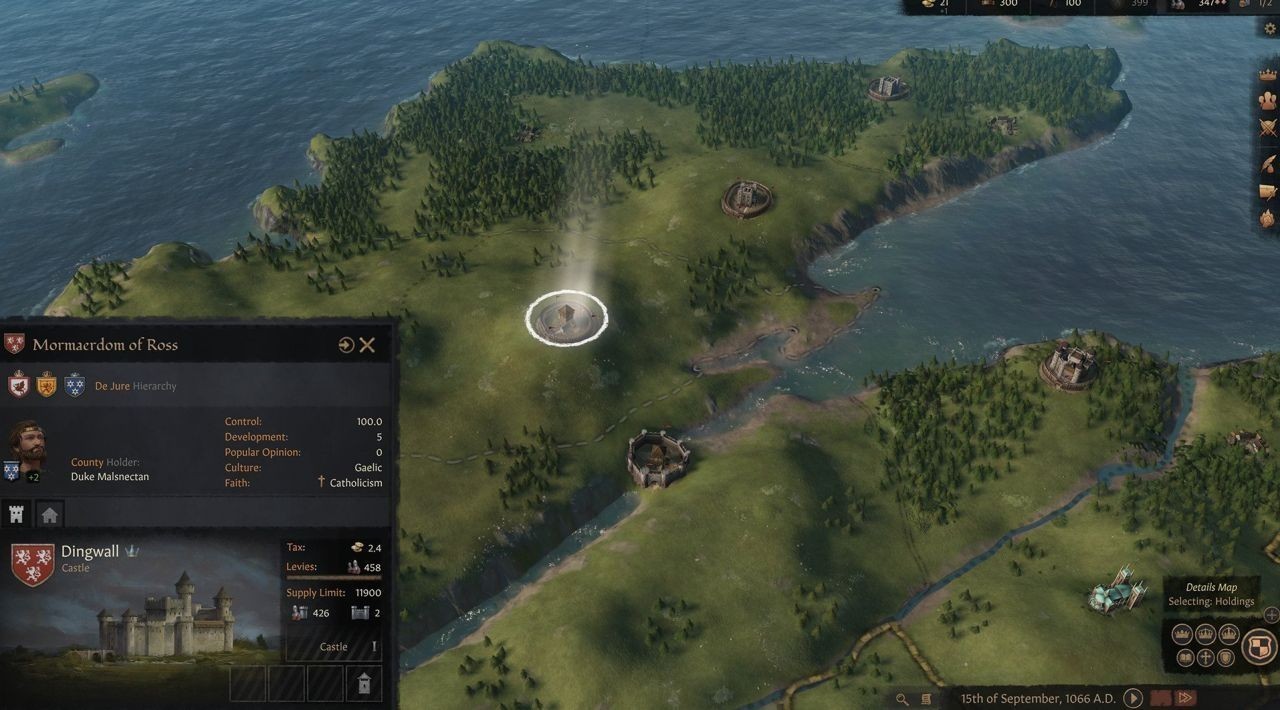I've become completely messed up throughout Crusader Kings III's plans with line trees. This my jailer, keeping me far too busy orchestrating murders and becoming pen pals with the Double of France to allow the horizontal. I should probably do something that, but I've understand this sequence crisis to sort out. You know how it is.
There never feels like fun to pace away from Paradox's grand strategy RPG. You can't just go for a nice walk when your leader remains at death's door or even the Complicated Empire say just announced a holy war—there's always somebody somewhere establishing a launch to you're going to should manage. This One Additional Crisis Symptoms and I've got it bad.
Anyone who's played Crusader Kings 2 really should remain familiar with the illness and be well-prepared for the sequel. You are once over the top of an early medieval era, and you'll try to prevent it bus for so long as you can by click, click, just click by it is elaborate place with heaps of menus. Your applications are diplomacy, intrigue, war and break, and your goals are what whims your mind conjures up.
Like most great strategy games, that cursed to look incredibly imposing, but this is the friendliest of the lot. That shed none regarding the complexity, but it's much better at demonstrating how all is connected. On top of a practical article which follows people started in Ireland, there's a course menu that's accessible at any time, as well as a seemingly infinite supply of tooltips. Smooth the tooltips have tooltips. Getting advice is like stepping through a portal into a dimension constructed simply out of suggestions on what to head a medieval dynasty, which seems being really helpful.
Don't get too hung on that things, though. You can obsess over figures and powergame your way throughout record, or you can go on a experimental journey to make a matriarchal league throughout North Africa created in Vikings, but you never need epic ambitions to get the most from Crusader Kings III; whatever you want is a dysfunctional family.

Expect The Sims, but you've got 20 people in your home, half of them say strong STDs, and the others are plotting a revolution. It's a marvelous fix. The family doesn't be in a vacuum, either, and will constantly collide with other relations with risks, but you can burn through plenty of times just mucking around with your domestic thing with securing the grip over the world.
Crusader Kings has always been about characters instead of states, but they've never seemed so heavy and so maddeningly real before. All of these is packed with firm with ambitions and will more often than not devolve into a petulant child when they don't get their own means. Following them is a massive job. They might be greedy, cruel, pious, horny, perpetually drunk—if you're seeking the adjective, you'll find it. Everything say a root cause, something the trait could be traced to, like a childhood bully or a movement which tried badly, creating characters formed near their earlier.
They lead developing before they're even allowed. Parents could offer congenital traits for their kids that can be strengthened over generations, letting you promote things like intelligence and balanced features in arranged marriages with base science. Inbreeding is one way this may be done—a perfectly natural thing to write in a videogame review—but that's a mark time bomb. One of my rival dynasties ended up almost destroying itself in limiting everything in the domestic, that create a whole generation almost completely infertile. Big Activity of Thrones fans.
A long-lived nature can earn a stunning number of traits over their own days, some of them slightly contradictory, yet there are always a couple of reliable core personality chances that bubble to the face. Everybody gets an handle that amounts them in place, so you don't have to trawl the identity sheet to acquire the measure of them. I'd be Fraser the wheel critic. These come in extremely useful when you're setting up marriages or considering somebody for a career by your own council. You never want your group to be a irrational craven—unless you think it is a laugh—and a union with a resentful villain probably wouldn't be a happy one.
These facts often end up reflected in a character's appearance. Everyone acquires a 3D model, subtly animated and posed to display both the mood and personality. I understood many scowling, but I just give that effect on people. Over the years you'll consider them change as they get wounds, diseases and just age. You can get a look to their lives just in looking in them. Know these lively relations is incredibly refreshing after spending days with Crusader Kings 2, where I needed to relate with pictures acquired during an open casket wake.
Someday they seem almost bespoke. All their report are random, emergent narratives, but then you have these arcs to fair seem very great. There are persons that go on these journeys taking them from no one to kings, full of surprise twists, heroic comebacks, secret romances—the lots of it. Crusader Kings 3 doesn't require us at all.
To really make a sign around the earth, as well as preserve your unruly empire in make sure, you first should focus on beefing up your ruler next matching some individual milestones. Thankfully, there's always a single event or a new hurtling towards an individual with prospect for expansion. You might walk in to your bedroom one evening and find a element regarding the risk molesting one of the boots or chamber pots, at which place you can track them away or cry the securities, and you can instead choose which, actually, fondling random objects is very much your sort of factor. And voila, you've found a new hobby. More natural events include having a really great conversation using a different close friend and finding a really neat dog.

By today, Paradox has become a grasp of pithy event text—it gets you quickly, then as easily that permits people shift onto your next scandal. You can know the writers had the most fun with the salacious stuff, but also mundane letters with bishops could be meaning a study. With characters becoming added solid, read the letters hardly sounds rude.
Lifestyles enable people chisel away at your rulers not having to depend on random events. They're effectively classes, each representing one of the game's skills. Finished the education, everyone has a tendency for a particular lifestyle, but you can accept whichever one you want and reset all the progression if you change your mind. Each lifestyle is split up in quarters you can focus on, offer a persistent passive bonus and enabling you start to acquire XP that can be used to unlock benefits from the lifestyle's three woods. Where its predecessor took a lot of inspiration from RPGs, this is a full RPG progression system that's fuelled with piece rather than kills and searches.
The charm lifestyle is exactly what I've get myself gravitating towards the most. That gives you a piling up in the dim planet of surprises, plots and catch, as well as spawning experience which enable anyone explore your shady area. I usually start with good intentions, but it never takes long before I'm spinning the network. Or at least trying to. On multiple occasion, I've realised too later i was the escape.
The lovely Mediterranean powerhouse I'd spent a lifetime building ended up ruined while my good mouth of a brother outed myself for eliminating your new, stupider brother. I did the action, I'll declare this. I drove our spymaster to get about for solutions I can functioned what land to make folks do my bet. I seduced my brother's vassal and persuaded among his knights to join myself inside section. So when he was alive flat, I practiced the secrets I'd assembled to compel my cowed nobles in doing shitty offers with present us more income. So when the last brother found out about the deed, he looked at to help blackmail everyone then, bombing which, he told all. All the vassals with their bruised egos rode up against me, obviously. I was introduced to a sickening end. That's just what I understand for getting my 70-year-old ass in battle.
My fascination with conspiracy ended up killing me, but it became and responsible for a lifetime that's stuck around my brain. Lifestyles help switch the caravan of pop-ups and outcomes into a cohesive story, deciding the tone and ensuring that the theatre you happen to entangled in gives you the chance to develop the skills you're interested in, or at least builds with the older. With really, sometimes it will produce your death.
The most insidious threat to a ruler, yet, is pressure. It's what is you honest. Or inappropriate. Or greedy. You gain stress every time you act against the personality. If you're innocent with you leave moving present inside food with a courtier, you're going to become wracked with shame. It's sneaky. That catch me once even if I thought about the death best friend. Boom—I'm feeling stressed. I knock the package to energy down those ideas, then I was damage the jar until I looked like gammon. And I go down, again.
Sometimes I'd tell myself into believing the stress penalty—it's just poisoning one guy, that fine, simply make it—but it easily rises up. There are countless ways that that may destroy you or just do a person completely useless, so the viewpoint of moving stressed in the sport get me extremely stressed in real life. It's awesome. There's more significance to these decisions, more chance, with the price of free spirit is the constant warning associated with a great existential crisis.
I've always gained a setback with RPGs allowing you build completely out-of-character choices with no real consequences. You can play Commander Shepard as a epitome of benefit and turn around and be like, "I'm super racist now, man", with nobody believes that's weird. This fine. Here's some red karma. Crusader Kings III will destroy the butt when you go to shit.
While you can spend countless hours place positive within roleplaying and charm, there's a huge simulated globe to color in your colour. This a sprawling, kaleidoscopic chart that extends from Iceland to Nigeria to Tibet. What took place generally tiny bits of state with little distinguishing traits in Crusader Kings 2 are now large areas with their own person.
Diverse terrain, unique geographical traits with special buildings set these themes separate and achieve some of them very tempting prizes for would-be conquerors. These are also issues that you'll need to consider if you're the conqueror. Perhaps the fortress you're besieging has monumentally tough Games PC Download walls, or maybe the landscape can put the cavalry-heavy army at a disadvantage. The developed map and means expanded tactical wrinkles—welcome ones—that make fights less of a pure numbers game.
OK, a lot of the time it does just drop to who has the most people willing to rush into movement. With you'll usually have to look for them and competition them again until they're completely wiped out. This still Crusader Kings. There are new options to get the advantage, though, like using knights and more high quality, specialised troops. Knights are like regular limbs of the court who want concepts and legacies and a litany of other things, but they're and great warriors who will wade in battle with the army's leader and cut their approach over the peasant levies. They're badasses, but when they grow more influential they'll have greater expectations, and your greatest knight could also become the best rival. That all quite Arthur and Lancelot.
There are new manner to help occupy the world that don't come with the obligation of run a empire that amount continents. You can increase your house to every angle on the record without gobbling up every county, using relationship and inheritances to set your generals with seats of weight outside your own realm. Powerful associates of your own period might as well decide to shape a cadet branch, escaping from beneath the weight with returning influence on the family members in this another apartment.
You're not giving up power; you're dividing responsibility. New houses and independent rulers contribute renown to the house, and as the head that way you're able to put your power about with use that renown on dynasty-wide legacies—think perks, but they're permanent and for your total group. Eventually you can build a dynasty of warlords or ensure that all the realms within your dynasty's umbrella control with machine-like efficiency. These are long-term goals, but you can get your head legacy pretty early with, laying the foundation for your specialised dynasty.
It has been a huge reduction to agree to some other figures do some of the heavy lifting. Control a line to immortality is exhausting, but right now that a squad try. Some branches will wither and die, while others might add themselves within a foreign empire and then eventually manage that, yet I'm happy so long as I'm understanding that sweet renown. Spreading the family allows you enjoy the sensation of capability and tear of growth but doesn't ditch people having a complete swarm of further management problems. All of the glory, and not quite as a lot from the firm work—it's the delight.
The loftiest ambition, of course, is to build anyone allow your god is the best one, before you can get in on the old era's biggest craze: heresy! Sure, if you're bored of Catholicism or a different established religion, you can really finish your own faith. This can cause a lot of instability, piss down the principal faith with takes a lifetime devoted to piety to display, but it's entirely worth it.
Faith with Crusader Kings 3 is greatly important and normally chock full of tips that ruin everyone's fun. They're severe and way too thinking about what families make of their own rooms, or sometimes the coastline, and once following the firms. The new religion can get rid of all that. Religions are assembled out of tenets, traditions that come with individual mechanics—normal stuff like communion, human sacrifice and schedule cannibalism—and doctrines that clarify the legitimacy of things like same-sex relationships, who can become a priest and if distance is OK. There are 14 doctrines that you have to stay, a trio of opinions to take (from a list of around 50), and then you've got to determine what quality are worthy or sinful. You might as well do yourself command of the trust while you're in that, except if you'd rather work following the landscapes you can let others enjoy the glory.
Creating a new culture effect during significantly the same road, but there's plus a discrete culture system that's tied to innovations. New regulations, unique thing and elite benefits can be unlocked over time for everyone in the background, yet simply the principal leader can actually pick what innovations to focus on. Even research becomes another resource of rivalry with absorb as you try to keep your fellow rulers after you. Just like new faiths keep pushing happy, another cultures may appear and start concerning the new established neighbours.
Crusader Kings 3 is always with action, always leap to modern features, so it never lets you have too settled. But it also never ventures far away from the comfort zone. Paradox hasn't needed it in the another route or made changes that will elicit any gasps. The jam which meet Crusader Kings 2 so enduring have been advanced for the top even more, while some of the bloat that accumulated over the greater part of a decade has been chipped away. It's a very sensible sequel.

I realize, I know—'sensible' is not the most encouraging of concepts. Let me reassure people, next, to Crusader Kings 3 is amazing. That an irrepressible story engine to throws out a constant supply of make alt-histories, delightfully infuriating individuals and gathering puzzles that I've become obsessed with unravelling. I can easily imagine being done with this. I just survive in digital drama now. Can Alfred finally put the torture step then create a friend? What's Bjorn going to perform ever since he knows their companion is in love with the chancellor? And who's likely to be spending patricide next? I need to spend less time writing reviews and more period with my own dynasties.